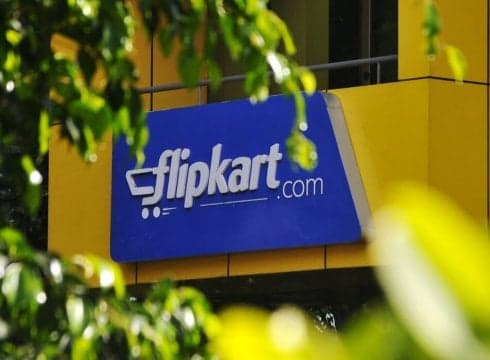Inc42 Daily Brief
Stay Ahead With Daily News & Analysis on India’s Tech & Startup Economy
After being in the news this week for buying Jabong for $70 Mn, Flipkart is back again with more news on its valuation front. So while Mutual fund investor Fidelity Rutland Square Trust II fund has marked-up the valuation of its Flipkart shares marginally by nearly 3% to $84.29 per share from $82 three months earlier, T Rowe Price has further marked down the value of shares it owns in it by 20% to $96.29 per share. This information was disclosed in the quarterly filings made by these funds in SEC filings for the quarter ending June 2016, as per a report in Indian Express.
Consequently, the markup by Fidelity values Flipkart at around $9 Bn, rising from the $8.8 Bn valuation earlier, while T Rowe’s mark down pegs it at $10.3 Bn. Interestingly, Fidelity’s mark up in valuation follows six successive valuation markdowns the Indian e-commerce giant has seen in the last couple of months. These repeated markdowns by its investors had put a question mark for the valuation tag of $15.2 Bn, which it once boasted of.
The markup by Fidelity follows two markdowns by it. In May, it had along with another investor Valic Co., marked down their stake in Flipkart by 20%. Earlier, Fidelity and Valic Co. had marked down their holdings in the company by 24% and 12% respectively in the previous quarter.
Meanwhile T Rowe Price’s markdown follows its earlier markdown in April where it had had marked down its shares in Flipkart by 15%. At that time, T Rowe marked the value of its Flipkart shares at $120.69 per unit as compared to the value of $142.26 assigned to them at the end of December 2015. Other major stakes that were marked down by the investment firm included Uber Technologies Inc., Dropbox Inc and apartment-rental site Airbnb Inc.
Several of Flipkart’s other investors such as Morgan Stanley, Valic Co I, and Vanguard have also been a party to the markdown exercise over the last six-to-seven months. In May, Morgan Stanley Mutual Fund Trust, had lowered the value of its shares in Flipkart, valuing it at $9.39 Bn. Previously in February, the fund had marked down Flipkart shares by 27%. Morgan Stanley’s fund had first invested in the ecommerce marketplace when it raised $160 Mn in October 2013.
While Binny Bansal had said earlier that “markdowns are a theoretical exercise by small investors”, analysts had seen the slew of mark downs in Flipkart’s valuation by its investors as a sign of growing concern among its investors about fixing the loss-making business model of the company. Towards this, Flipkart has made an effort to ramp up its revenues and increased the commission it charges the sellers on its marketplace by 5%-6% across several segments such as fashion and mobile accessories. Its latest acquisition of rival Jabong is also expected to strengthen its hold over the fashion category, which is the second largest segment for online retailers after smartphone and electronics. The move is expected to help it score an edge over Amazon, which is still getting it right.
Nevertheless, the threat from Amazon continues with founder Jeff Bezos last month committing an additional $3 Bn investment to its India unit, taking the total commitment to $5 Bn.
This week, Amazon has launched Amazon Prime membership program in India. With Prime, customers in over 100 cities can avail unlimited free one-day and two-day delivery on eligible products. Amazon India also inaugurated its largest Fulfilment Centre (FC) in Sonipat near New Delhi this month and is investing in setting up six new fulfilment centres to meet the demands of its seller base in the country.
{{#name}}{{name}}{{/name}}{{^name}}-{{/name}}
{{#description}}{{description}}...{{/description}}{{^description}}-{{/description}}
Note: We at Inc42 take our ethics very seriously. More information about it can be found here.


